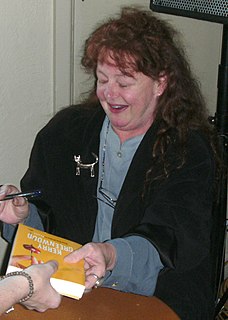A Quote by Marcus Tullius Cicero
Who does not know that the first law of historical writing is the truth.
Related Quotes
I don't think the law exists to arrive at the truth. If it did, we wouldn't have exclusionary rules, we wouldn't have presumptions of innocence, we wouldn't have proof beyond reasonable doubt. There's an enormous difference between the role of truth in law and the role of truth in science. In law, truth is one among many goals.
I think it's dangerous to think you know what you're writing. I usually don't know, and usually I just discover it in the course of writing. I envy those writers who can outline a beginning, a middle, and end. Fitzgerald supposedly did it. John Irving does. Bret Easton Ellis does. But for me, the writing itself is the process of discovery. I can't see all that far ahead.
Cleverly assorted scraps of spurious science are inculcated upon the children to prove necessity of law; obedience to the law is made a religion; moral goodness and the law of the masters are fused into one and the same divinity. The historical hero of the schoolroom is the man who obeys the law, and defends it against rebels.
I have to write three books a year to make a reasonable living out of writing - unless, of course, she gets a major American film deal. Phryne has been optioned since the very first book, but to make a historical TV movie, it costs $30,000 a day extra for the historical detail to be correct, so most people aren't doing it.
Truth is like the stars; it does not appear except from behind obscurity of the night. Truth is like all beautiful things in the world; it does not disclose its desirability except to those who first feel the influence of falsehood. Truth is a deep kindness that teaches us to be content in our everyday life and share with the people the same happiness.











































